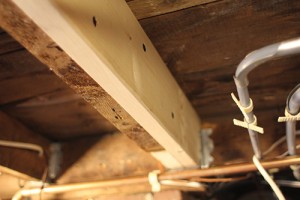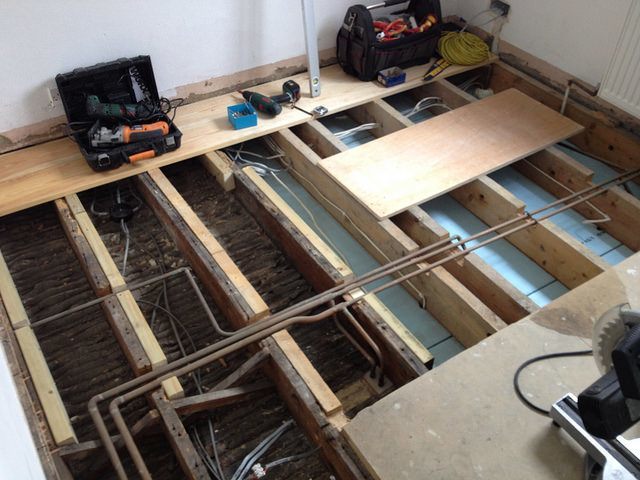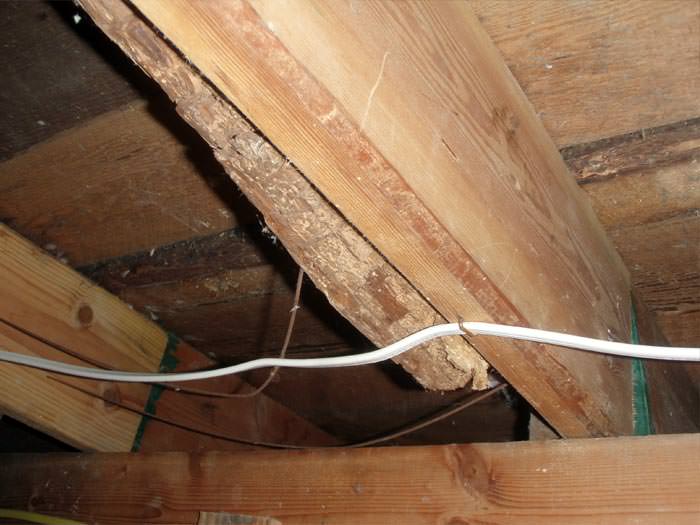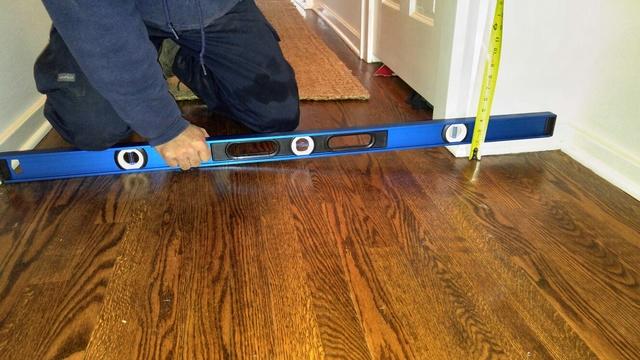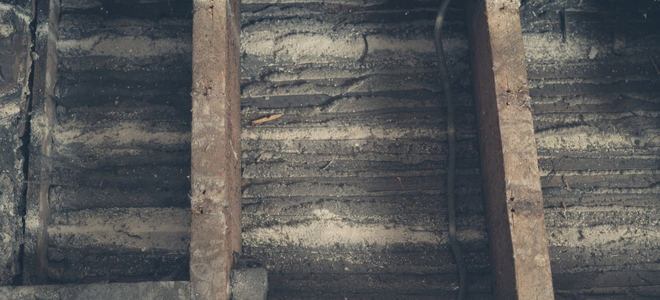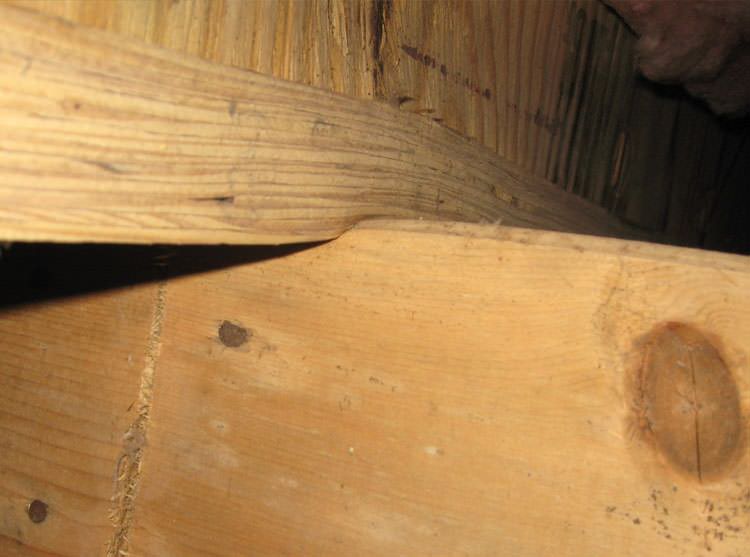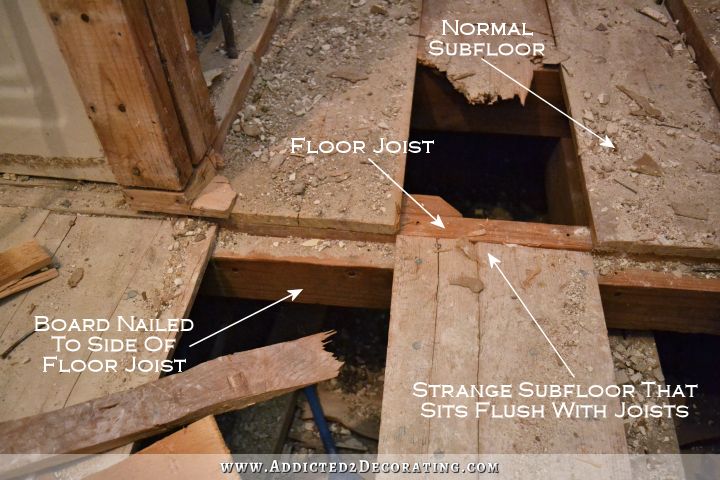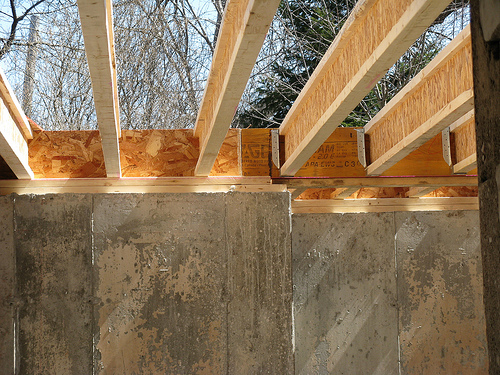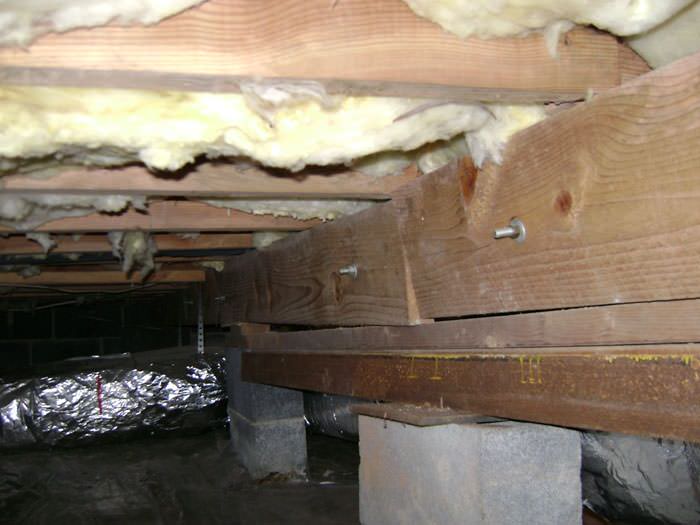Depending upon the conditions it is possible to strengthen or repair existing framing members such as floor joists or roof rafters by adding reinforcing material sandwiching the member on either side with plywood is sometimes worthwhile but the plywood must be installed correctly for greatest strength.
Replacing floor joists from below.
That s a different story.
Working in the unfinished basement below the bouncy floor we had to remove the plumbing and electrical lines running through the joists and then rerun the lines.
Replacing the floor under the bathtub toilet and the sink.
Subfloor is glued and screwed on top for a squeak free floor.
Then use pry bars and your reciprocating saw to pry and cut the floor joist away from the subfloor.
Pry the floor joist from the subfloor with the back of your hammer.
This will create a weak spot.
But replacing a joist in a house that already stands.
But if there s limited access to the joists it may be necessary to work from above removing the flooring and subflooring to repair or replace any damaged floor joists.
The foundation is open and the joists just drop in from above.
The notch was made where the floor joist recessed into a wood beam supported by chimney corbeling.
Using some construction adhesive like loctite pl premium available on amazon in a caulking gun run a small bead of adhesive along the top of the floor joists.
From initial inspection it appeared that someone had notched the joist too much and then installed a makeshift patch.
Continue reading below our video of the day get out your crowbar and your hammer.
Typically floor joists are repaired or replaced working from below in a basement or crawl space.
Installing a floor joist is a relatively easy task in new construction.
It was a complex expensive job.
This joist was installed in 1863 and was located directly below where a heavy refrigerator now lives.
Thre ways to fix a sagging or sloping floor.
Put the tip of the crowbar between the boards and push it in using the hammer to tap on the end.
To replace floor joists you must first remove the floorboards that cover them.
Start by cutting out a small 1 2 in 2 5 5 1 cm section of the floor joist with a reciprocating saw.

